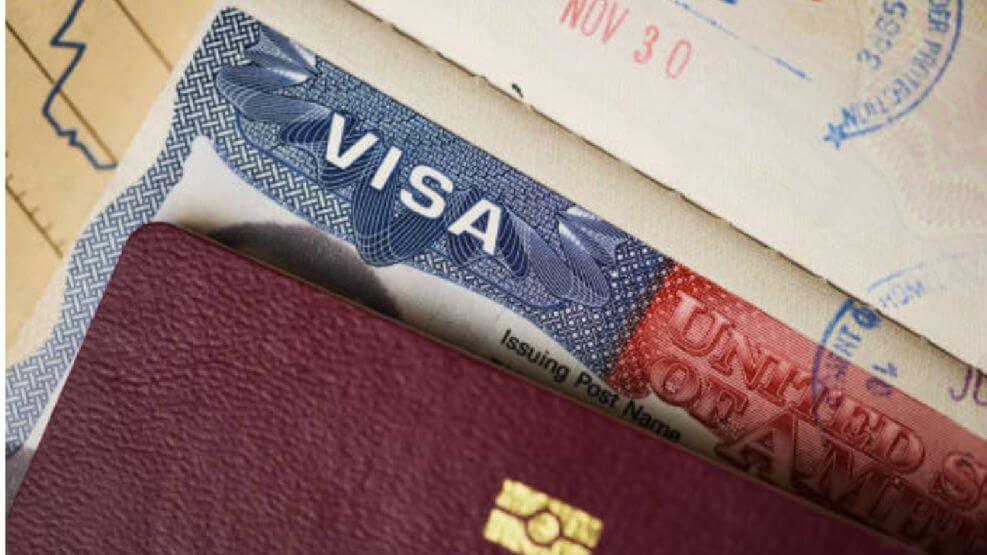When it comes to domestic violence situations, many people resort to the VAWA visa. After gathering enough evidence and complying with the stipulated requirements, they are ready to submit the application.
Some time later, the victim may receive a notice of case initiation, also called a prima facie determination. However, what does it imply in the immigration context, and how does it relate to the VAWA visa application?
For more information, at Jaskot Law, we can advise you on this particular issue, and answer any questions you may have about your VAWA visa application and the “prima facie.” Contact us, and start your case!
What is “Prima Facie”?
A “prima facie” or “prima facie determination” is a preliminary evaluation by the U.S. Citizenship and Immigration Services (USCIS) to determine whether an applicant meets the minimum standards of admissibility. However, this notice does not amount to a formal approval, but rather grants the applicant certain provisional rights. In addition, it may allow you to receive assistance while your case is being reviewed.
Prima facie determination and VAWA: how does it impact the immigration process?
The “prima facie determination” is a preliminary assessment conducted by the U.S. Citizenship and Immigration Services (USCIS). A victim who applied for a VAWA visa receives this notice when the government entity has carefully reviewed the documents provided, and determined that the petition appears to meet all the requirements to constitute a case.
I received my VAWA Prima Facie, does this mean that my application has been approved? Can it be denied?
It is important to clarify that, although the submission of the “prima facie” constitutes a positive step in the VAWA application process, it only indicates that the petition requirements have been met; therefore, it increases the chances that your application will be approved.

At this stage, if the USCIS requires additional information to consider a petition, it will send the petitioner a “Request for Evidence,” which must be responded to with the required information within the specified time period; otherwise, the petition may be denied.
Remember that Jaskot Law can help you go through this process with the knowledge and clarity needed. Call us or write us at jared@jaskot.law, and we will advise you on the matter.
How long does VAWA Prima Facie take to arrive?
Generally, the USCIS issues the prima facie within the first 4 to 6 months after you file your VAWA visa application. However, this period may be subject to the availability and number of requests at that time, and the application conditions.
With respect to the application condition, it is important to mention that the quantity and quality of evidence that the petitioner attaches to his or her petition will be key for the governmental entity to determine, on a preliminary basis, that the application represents a favorable case.
Get help to present your case. Contact our offices, and we will give you proper advice.

What benefits do I get with the VAWA Prima Facie?
In the VAWA visa application process, receiving the “prima facie determination” is essential, since it provides certain benefits and guarantees to the petitioners. In this regard, the following key benefits are presented:
- Protection against deportation: By receiving the “prima facie determination”, you are provided with temporary protection against deportation. This means that during the time your VAWA visa application is being evaluated, you cannot be deported from the country.
- Eligibility for certain public benefits: Once you receive the preliminary determination, you may qualify for access to certain public benefits, such as the Supplemental Nutritional Assistance Program (SNAP) or Medicaid. These benefits can provide crucial support while you wait for a final decision on your VAWA visa application.
- Employment authorization: After receiving the “prima facie determination,” you can apply for an employment permit known as an “Employment Authorization Document” (EAD). This authorization allows you to work legally in the United States while your VAWA visa application is pending.
- Access to services and resources: The “prima facie determination” also allows you to access services and resources available to victims of domestic violence, which may include legal advice, assistance in finding safe shelter, and emotional support.
Did you receive the “prima facie” after applying for your VAWA visa, and don’t know how to access the corresponding benefits? At Jaskot Law, we can help you. Don’t waste time. Contact us, and secure your future!
What’s next after VAWA Prima Facie?
As mentioned above, while receiving a “prima facie determination” is an encouraging step in the VAWA visa application process, it does not constitute its approval. Therefore, it is important that you keep in mind some important aspects in this process, among which are the following:
- Constant evidence gathering: Although the “prima facie” indicates that there is sufficient indication of eligibility, you should still continue to gather solid evidence and additional documentation to support your case if necessary.
- Constant evaluation of your application: While the “prima facie determination” provides you with temporary protection against deportation, it is essential that you continue to meet the requirements and fully cooperate with the USCIS throughout the application process, as your case will continue to be evaluated until a final decision on your eligibility is made.
- Potential challenges and delays: Although “prima facie” streamlines your access to certain benefits and services, the VAWA visa application process can be time-consuming. Therefore, you may face challenges and delays along the way, either due to the need for more evidence or a workload at USCIS.
Conclusion
The “prima facie determination” plays a crucial role in the VAWA visa application process in the United States. Obtaining this preliminary determination can provide you with protection from deportation, access to benefits and services, and the ability to work legally while your application is being evaluated.
However, it is important to remember that this decision does not automatically guarantee approval of the VAWA visa, and that you must continue to gather evidence and comply with the established requirements until approval.
If you need to apply for a VAWA visa, but are overwhelmed with questions about the process and the importance of the “prima facie determination,” at Jaskot Law, we can help you. Contact us, and start the process with peace of mind!
Sources
United States Citizenship and Immigration Services (USCIS) – VAWA
Frequently Asked Questions
What is Prima Facie?
A “prima facie determination” is a preliminary assessment made by the United States Citizenship and Immigration Services (USCIS) with respect to an application for a particular immigration instrument.
What is the relationship between VAWA visa and Prima Facie?
A victim who applied for a VAWA visa receives a “prima facie determination” when the government entity carefully reviewed the documents provided and determined that the petition appears to meet all the requirements to constitute a favorable case.
If I received the Prima Facie, does it mean that my VAWA visa application was approved?
The “prima facie determination” is not an instance of approval of the VAWA visa, but it only indicates that the requirements have been met and, therefore, it increases the likelihood that your application will be approved.
What benefits do I get with the VAWA Prima Facie?
In the VAWA visa petition process, receiving the “prima facie determination” is essential, as it provides certain benefits and guarantees to the petitioners, such as the following:
– Protection against deportation.
– Eligibility for certain public benefits.
– Employment authorization.
– Access to services and resources.
What’s next after VAWA Prima Facie?
While receiving a prima facie determination is an encouraging step in the VAWA visa application process, it does not constitute approval. Therefore, it is important that you continue with the following steps:
– Continuous collection of evidence.
– Continuous evaluation of your application.
– Potential challenges and delays.

